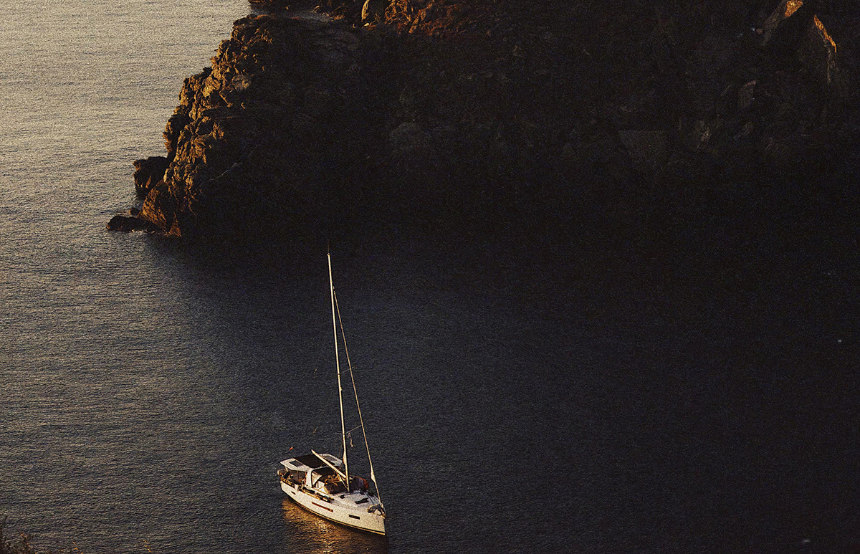Published 28th Jun. 2021
Reading time
Re-use, reduce, recycle. We all know the huge importance of conserving and protecting our beautiful planet, and we all try to do our bit to help the environment and to reduce both our energy use and waste (Kenya and Rwanda are away ahead of us by the way, banning the use of plastic bags entirely). And for those who want the eco-loving to carry over into their Responsible Travel planning, without having to sacrifice on quality and creature comforts, you're in luck because we've scoured the globe in search of our top five A+ eco-hotel pupils that all go above and beyond to hold some serious eco-credentials...
The private island escape of Thanda is not only luxurious, beautiful and available for exclusive hire only, but it's also completely committed to marine conservation projects and is 100% self-sufficient. What's not to love about this guilt-free eco-retreat? Thanda has teamed up with the Tanzanian Marine Parks and the leading NGO, Sea Sense, to help conserve the region's sea turtles, dugongs, dolphins and whale sharks, as well as preserving and rehabilitating the Shungimbili coral reef. Powered by solar energy, Thanda is entirely conscious of maintaining an extremely low carbon footprint, with an on-island desalination plant for all fresh water needs, including the swimming pool, and the use of recycled grey water for gardening.
Located on the mysterious and isolated Easter Island in the Pacific Ocean (the closest inhabited island is 1,200 miles away), Explora Rapa Nui is dedicated to the sustainability and development of both the island environment and the local community. Supporting the native Rapa Nui during the traditional Tapati festival, which is one of the most relevant and cultural milestones on the island and takes place during February every year, is of great importance to the eco-hotel with it contributing financial and logistical assistance to the organisation of this event. Explora Rapa Nui handles organic waste through a compost process and has a 'leave no trace' policy. Explora also plays a large role in archaeological programmes on the island providing educational opportunities to the local community.
Soneva Fushi takes its environmental and social responsibilities very seriously, even having an annual sustainability report open to the public. Unique to Soneva, the Maldives resort 'upcycles' all of its glass waste into extraordinary recycled glass items, all completed on-site which, as well as being a great recycling method, also creates beautiful pieces of art. As well as recycling glass, Soneva sources all of its water sustainably and is 100% self-sufficient, and even treats and filters all of its waste water to ensure that no untreated waste is released into the Indian Ocean. The Soneva Foundation works with various charities to implement clean water projects , and has so far helped over 600,000 people to have access to safe water.
Of course we couldn't write this blog without including an entry to the star pupil of eco-tourism, Costa Rica - a country which prides itself in the conservation and protection of its richly biodiverse environment. Punta Islita is true to Costa Rica's commitment and states to be 'one of the most eco-friendly beachfront hotels' in the Central American country. Punta Islita supports local wildlife conservation, reforestation, and local employment and educational opportunities. The on-site Islita Art Museum is an innovative cultural programme that pairs established Costa Rican artists with the local community.
Grootbos Private Nature Reserve is a luxurious 4,200 acre nature reserve overlooking Walker Bay on the Cape Coast. The Grootbos Foundation is committed to sustainable tourism, protecting the environment's biodiversity and improving the local rural area's socioeconomic issues. Initiatives are therefore focused on providing sustainable nature-based jobs. So far the foundation has created over 150 local jobs that involve working on the land to protect the flora biodiversity. By staying at Grootbos, guests help to directly contribute to the conservation of the nature reserve as well as supporting livelihoods amongst local communities.
Practical advice and inspiration for your next trip

There’s more to Tunisia holidays than blissful beaches. History buffs are in luck with plenty of UNESCO World Heritage sites to explore, while architecture enthusiasts can admire the coastal towns’ white-washed facades. If natural wonders are more up your alley, Tunisia’s vast salt flats and towering palm groves are a must-see, while the artisanal treasures in the Medina of Tunis await those on a souvenir search.
9th December 2025 - Tunisia Travel Inspiration

When it comes to romance, Greece’s islands set the bar high. From Paros’ sun-kissed beaches and Folegandros’ blush-pink blooms to Sifnos’ culinary delights and Hydra’s slow-paced streets, each island radiates beauty. Whether you fall in love with the sunset in Santorini or the atmosphere in Apollonia, the perfect spot awaits. Read on to discover the most romantic islands in Greece... Paros Folegandros Sifnos Hydra Santorini Paros Best for:
27th October 2025 - Greece Travel Inspiration

When it comes to postcard-perfect beaches, the USA has them in bucket-(and spade)-load. From California’s colourful coast and Florida’s buzzing beaches to Oregon’s rugged shores and Georgia’s photogenic stretches, there’s no shortage of sandy escapes on a USA holiday. Spot puffins on Cannon Beach and nesting turtles on Perdido Key, or stroll past Art Deco architecture on South Beach and charming hotels overlooking Coronado Beach.
4th August 2025 - USA Beaches & Islands

Our team of destination experts will get to know you and your unique requirements for your holiday

We work with you to build an ultra-personalised holiday itinerary with your choice of accommodation, experiences and activities

All of our holidays include little extras designed to make a big difference to your trip, from fast-tracking you through airport check-in and security to our network of local Concierges